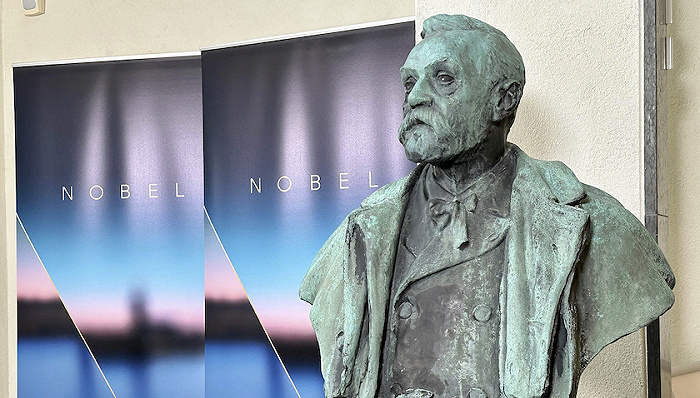The Royal Swedish Academy of Sciences announced on October 4 that it will award this year’s Nobel Prize in chemistry to three scientists, Mongi Bavendi, Louis Bruce and Alexei Ikimo, in recognition of their dedication to the discovery and decomposition of quantum dots.

According to the citation, Ikimo and Bruce successfully invented Quantum Dot, while Bhavendi revolutionized the chemical production of quantum dots. The smallest components of these nanotricks are now used in OLED TVS and LED lights to spread light, and biochemists and doctors use them to map biological structures.
Semiconductor nanocrystals less than 10 nanometers in diameter are often referred to as quantum dots. Nordemin pointed out that quantum dots are now an important part of the “toolbox” of nanotechnologies, and the three winners are all pioneers in exploring the nanoworld.
Researchers have mainly used quantum dots to invent colored light. In the future, they think, quantum dots could contribute to flexible electronics, tiny sensors, thinner solar cells, and even cryptographic quantum communications.
According to the Nobel Punishment Network, Bavendy was born in Paris, France, in 1961; He received his Ph.D. from the University of Chicago, Illinois, USA in 1988. He is currently a professor at the Massachusetts Institute of Technology in Cambridge, Massachusetts. He transformed the chemical production of quantum dots, eliminating near-perfect particles.
Bruce, born 1943 in Cleveland, Ohio; He received his Ph.D. from Columbia University in New York in 1969. He is currently teaching at Columbia University in New York, USA. He was the first scientist to demonstrate the size-independent quantum effect of free-sinking particles in a fluid.
Ikimo, born 1945 in Soviet Union; In 1974, he received his Ph. D. from the Institute of Physics Techniques, Ioffe, Saint Petersburg. He was the chief scientist of nanocrystal Technology Corporation in New York, USA. In early 1980, Ikimo succeeded in developing size-independent quantum effects in tinted glass.
In 2023, the penalty for each Nobel Prize has been increased from 10 million Swedish kronor last year to 11 million Swedish kronor, about 7.25 million yuan, and the above three scientists will share the penalty.
In addition, between 1901 and 2022, 189 people were awarded the Nobel Prize in Chemistry.
According to the World Times, the winner of today’s punishment was supposed to be announced at 11:45 local time this morning, but the Royal Swedish Academy of Sciences withdrew an email entitled “They planted important seeds for nanotechniques” as early as 07:31.
According to a press release from Bao, “The 2023 Nobel Prize in Chemistry punishes the discovery and development of quantum dots and nanoparticles, which are so small that their size determines their personality.” The email also listed the three scientists as those to be punished.
After the incident, the Nobel Committee promptly clarified that several committee members had exaggerated that no decision had been made on the achievement.


